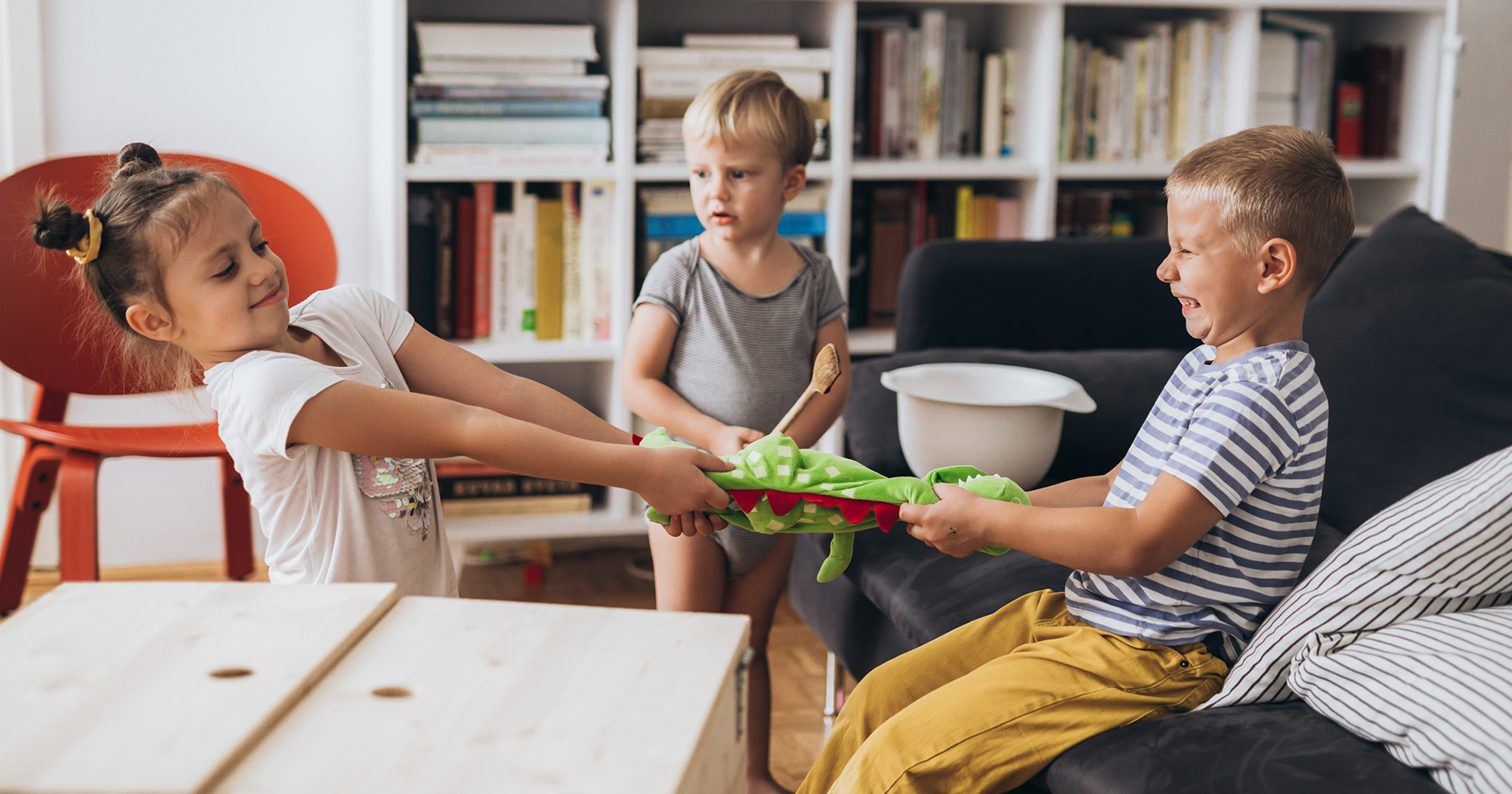- 855.224.8655
- Schedule a Tour

Young children often utter the phrase, “It’s not fair!” Responses can vary from agreeing to saying other things, such as, “Well, life’s not fair,” or “You get what you get, and you don’t get upset.”
While these responses may provide an immediate result, we encourage you to embrace this moment as a learning opportunity. Let’s explore ways to help children understand fairness and encourage prosocial skills (which is a social behavior that benefits others, including sharing).
Understanding your child’s development can help you to appropriately support and further their growth. In the area of social and emotional development, young children primarily think about themselves, so sharing and conflicts can create some big emotions.
As children approach 4 years old, they begin to think outside of themselves and may be more inclined to share because they want others to feel as good as they do. The key takeaway is that children need practice and opportunities to learn about their feelings and the feelings of others.
Offer Guidance
Your children will need your guidance to navigate how to share and resolve conflicts. You can do this in three primary ways:
- Narrate and offer solutions. Talk about what is happening, such as, “Your big sister is on the big climber, and you want to go on it too. It’s okay to be upset. We can try some other things just your size. Would you like to try the swings or slide instead?”
- Keep it simple. When your child is upset about a situation, keep your language simple and follow up when the situation is calm.
- Provide support. When children cannot get something they want or are told to wait, uncomfortable feelings will result. Acknowledge and validate their feelings by saying something like, “It is hard to wait your turn. We can read or sing together while you wait.”
Model Behaviors
Model sharing and prosocial behaviors with your children and other adults you come across. Children learn about the world and how to interact by observing the special adults in their lives.
Acknowledge Differing Needs
- Ask open-ended questions. Try saying, “Can you share more with me,” or “What do you need right now,” or “What are some ways we can make this better?”
- Acknowledge your child’s feelings and listen. If children feel that you care and are interested in them, they’ll be more willing to partner with you in developing solutions.
- Discuss similarities and differences. Talk with your child about similarities and differences among themselves and others. Let them know that because of these differences, someone may need something different, and that is fair. For example, some of your child’s peers may still be learning how to share, whereas your child may share willingly.
- Empower your child. Encourage your child to help others or to ask for what they need to maintain fairness, such as sharing a toy because they know how and are helping their peer learn.
Read Intuitive Books
Explore the concepts of diversity, fairness, kindness, and healthy conflict resolution through books. This is an opportunity to point out similarities and differences, ask questions, and promote open dialogue about various situations.
Guiding your child to be considerate of others using the suggestions shared here will foster kindness, develop their social/emotional skills, and help them to better understand fairness. For more resources to support this journey, check out these early education websites:
- ZERO TO THREE
- NAEYC (National Association for the Education of Young Children)
- NCPMI (National Center for Pyramid Model Innovations)
